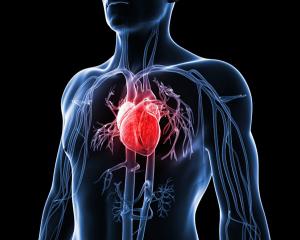This study looked at whether early signs of heart damage, known as left ventricular injury (LVI), are linked to a higher risk of stroke or dementia later in life. The left ventricle is the main pumping chamber of the heart, and LVI means this part of the heart isn’t working as well as it should. Researchers used heart MRI scans to look for signs of LVI in participants from MESA. They followed the participants for nearly nine years to see who developed stroke or dementia during that time.
The researchers found that people with LVI were more likely to have a stroke or be diagnosed with dementia compared to those without LVI. Certain heart measurements, such as how well the left ventricle squeezes (called ejection fraction) and how the heart muscle stretches and contracts (called strain), were also linked to dementia risk. These findings suggest that problems with heart function—detected by imaging even before symptoms appear—may provide early warning signs for brain health issues like stroke and dementia.
If you’re a participant in the MESA study, your involvement is helping researchers better understand how heart and brain health are linked. If you have concerns about your heart or memory, consider discussing this with your doctor. Staying active in the study, keeping up with medical checkups, and living a heart-healthy lifestyle are all important steps toward protecting your health in the years to come.
Source: Sharma R, Hansen S, Merkler AE, Lima JAC, Longstreth WT Jr. Left Ventricular Injury Detected by Cardiac MRI and Incident Ischemic Stroke and Dementia Risk: The Multi-Ethnic Study of Atherosclerosis. Neurology. 2025 May 13;104(9):e213606. https://pubmed.ncbi.nlm.nih.gov/40249894/ Epub 2025 Apr 18.



